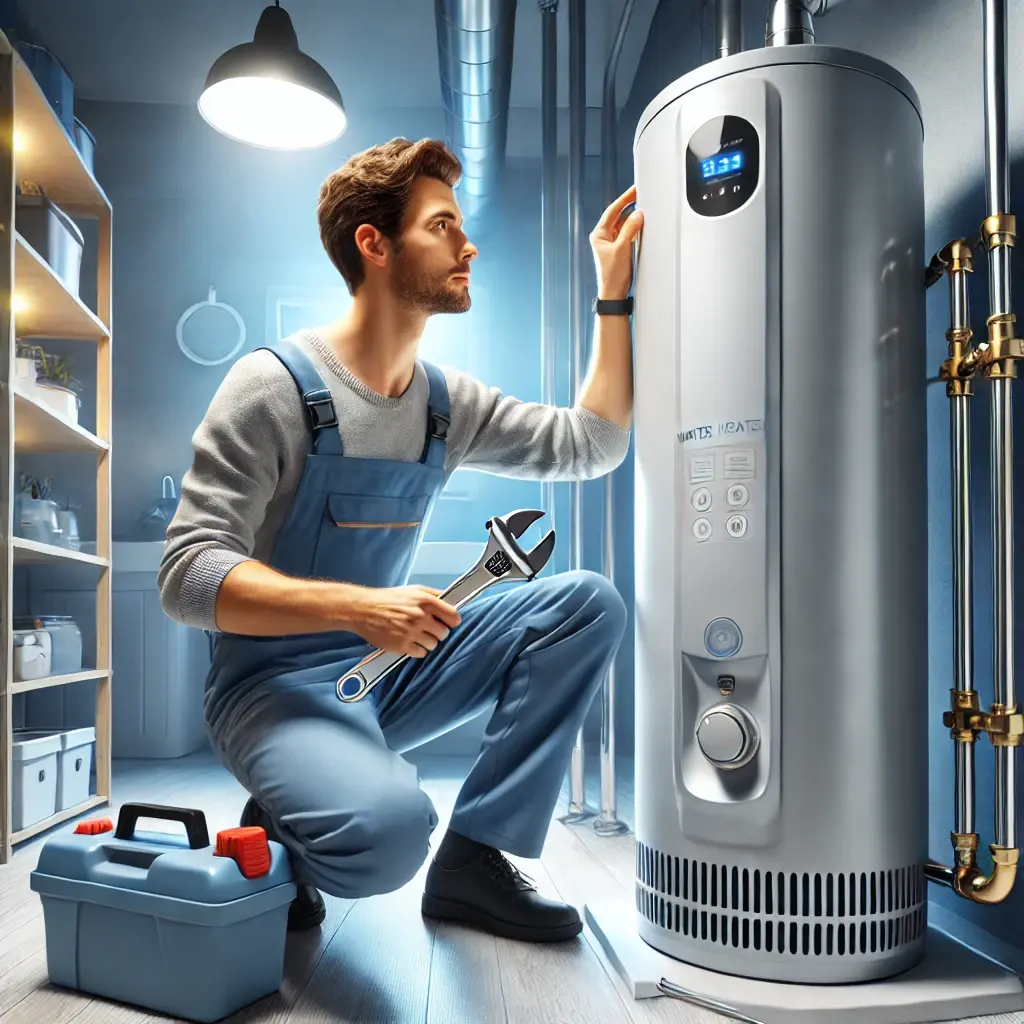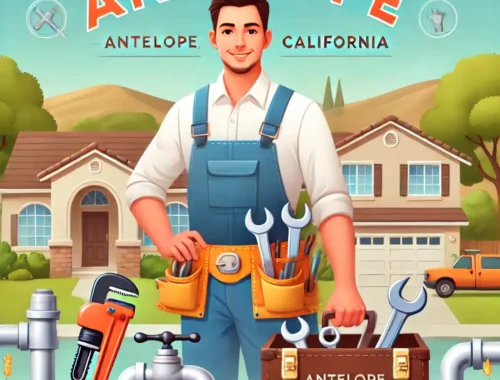
Water Heater Maintenance: How to Protect Your Home?
Table of Contents
ToggleWater Heater Maintenance: How to Protect Your Home? Complete Guide
Your water heater is a vital appliance that ensures the comfort and functionality of your home. Proper maintenance not only prolongs its lifespan but also prevents costly repairs and potential water damage. Here’s a detailed guide to water heater maintenance and how it protects your home.
1. Regularly Inspect the Water Heater
Performing routine visual inspections can help you spot potential problems early.
- Check for Leaks: Look around the base of the water heater and its connections for any signs of water pooling.
- Inspect for Rust and Corrosion: Corrosion around the tank or connections often indicates wear and tear that requires attention.
- Monitor the Tank’s Condition: Be aware of unusual sounds such as rumbling, which could signal sediment build-up.
2. Flush the Tank Annually
Sediment and mineral deposits accumulate at the bottom of the tank over time, reducing efficiency and potentially damaging the heater.
- Turn Off Power and Water Supply: Before flushing, shut off the power source and water inlet.
- Drain the Tank: Attach a hose to the drain valve and direct it to a safe discharge area.
- Rinse and Refill: Rinse out remaining debris with fresh water before refilling the tank.
3. Test the Pressure Relief Valve
The pressure relief valve prevents excess pressure build-up that could lead to dangerous malfunctions.
- Release Water: Lift the valve lever to release water, ensuring it flows out properly.
- Inspect for Proper Sealing: Once closed, check if the valve reseals completely to avoid leaks. Replace it if needed.
4. Inspect and Replace the Anode Rod
The anode rod is a critical component that prevents tank corrosion.
- Locate the Rod: It is typically found on top of the tank.
- Examine for Wear: If the rod is heavily corroded or less than ½ inch thick, replace it to maintain protection.
- Choose Compatible Materials: Use an aluminum, magnesium, or zinc rod based on your water type.
5. Maintain the Optimal Temperature Setting
Keeping the water heater at an appropriate temperature improves safety and efficiency.
- Recommended Setting: Set the thermostat to 120°F (49°C) to reduce energy consumption and prevent scalding.
- Avoid Excessive Heat: Higher settings can strain the heater and increase the risk of overheating.
6. Insulate the Tank and Pipes
Insulating the water heater and surrounding pipes minimizes heat loss, improving performance and efficiency.
- Wrap the Tank: Use a water heater insulation blanket designed for your model.
- Cover Exposed Pipes: Insulate hot water pipes to maintain water temperature and prevent freezing in cold weather.
7. Address Heating Elements and Thermostats
For electric water heaters, heating elements are essential for proper functioning.
- Turn Off Power: Always disconnect electricity before performing inspections.
- Test Heating Elements: Use a multimeter to ensure they are working correctly. Replace any defective parts promptly.
8. Schedule Professional Maintenance
While regular DIY care is essential, professional servicing ensures comprehensive maintenance.
- Thorough Inspections: Experts can assess hidden issues like internal corrosion or thermostat failures.
- Expert Repairs: Professionals handle complex problems safely and efficiently, extending the life of your water heater.
Common Water Heater Problems and How to Address Them
1. No Hot Water
- Cause: Pilot light is out (gas models) or a tripped breaker (electric models).
- Solution: Relight the pilot or reset the breaker. If the issue persists, check the thermostat or heating element.
2. Water Takes Too Long to Heat
- Cause: Sediment buildup or a malfunctioning thermostat.
- Solution: Flush the tank and check the thermostat settings.
3. Low Water Pressure
- Cause: Sediment or mineral deposits clogging the pipes or tank.
- Solution: Flush the tank and consider installing a water softener.
4. Leaking Tank
- Cause: Corrosion or damage to the tank.
- Solution: Unfortunately, a leaking tank usually requires replacement.
Tips to Protect Your Home from Water Heater Issues
1. Install a Leak Detector
Leak detectors can alert you to leaks before they cause significant damage. Some advanced models even shut off the water supply automatically.
2. Use a Drain Pan
A drain pan under the water heater can catch minor leaks and direct water to a safe drainage area.
3. Schedule Professional Inspections
While DIY maintenance is essential, having a professional inspect your water heater annually can help identify potential issues early.
4. Turn Off the Water Heater When Away
If you’re going on vacation, turn off the water heater or set it to vacation mode. This minimizes wear and reduces the risk of leaks.
Benefits of Regular Water Heater Maintenance
- Prevents Water Damage: Avoids leaks that can cause structural damage to your home.
- Increases Efficiency: Ensures consistent performance and reduces energy bills.
- Extends Lifespan: Regular care can add years to your water heater’s service life.
- Reduces Repairs: Identifying and addressing minor issues early prevents costly breakdowns.
Signs Your Water Heater Needs Immediate Attention
- No Hot Water: Indicates potential thermostat or heating element issues.
- Discolored Water: Rusty or murky water suggests corrosion or sediment problems.
- Unusual Noises: Rumbling or popping sounds often result from sediment build-up.
- Increased Energy Bills: An inefficient water heater consumes more energy.
When to Replace Your Water Heater?
If your water heater is over 10-15 years old or requires frequent repairs, consider upgrading to a modern model. Options include:
- Tankless Water Heaters: Provide energy-efficient on-demand hot water.
- Solar Water Heaters: Eco-friendly solutions that use renewable energy.
- High-Efficiency Tanks: Advanced insulation and technology reduce energy consumption.
Final Thoughts About Water Heater Maintenance
Water heater maintenance is essential for the efficient operation of your appliance and the protection of your home. By performing regular maintenance, addressing issues promptly, and knowing when to replace your water heater, you can avoid costly repairs, extend the lifespan of your unit, and ensure a reliable supply of hot water.
Invest in preventive measures like leak detectors and annual professional inspections to safeguard your home. With proper care and attention, your water heater will continue to serve you reliably for years to come.
FAQs: Water Heater Maintenance
Below are some of the FAQs about Water Heater Maintenance. However if you have any other questions or queries in your mind then dont hesitate to use our contact us page to contact with our team.
How do I protect my water heater?
It’s quick, easy, and efficient to insulate the storage tank of your water heater to keep it from freezing. The tank is covered with an insulating blanket. Additionally, think about insulating your water heater’s connecting pipes. This is particularly crucial if the water heater or pipes run along a wall that surrounds your house.
How to do preventive maintenance on a water heater?
Flushing the unit, checking and replacing the anode rod as necessary, checking for leaks or corrosion, and testing the thermostat and valves are all part of water heater maintenance. The most crucial part of water heater maintenance is the flush, which you should not neglect.
What is the most important safety device on a residential hot water heater?
The temperature-pressure relief (or “T & P”) valve is a safety feature found close to the top of the majority of water heater types.
What type of safety control is required on water heaters?
The main safety element of a water heater is a temperature and pressure relief valve (T&P valve). This dual-purpose valve, as its name implies, keeps an eye on the hot water tank’s water pressure and temperature. If the temperature approaches 210º F (99º C) or the pressure approaches 125–150 psi, it opens to discharge water.
What is the normal life of a water heater?
8–12 years
Even though modern water heaters are more well-designed than their predecessors, they nevertheless need routine maintenance to last longer. An electric water heater should last 10 to 15 years, whereas a gas water heater should last 8 to 12 years with routine cleaning, draining, and flushing.
You May Also Like

How Can Mutual Fund Apps be Helpful in Your Investment Journey?
14 February 2025
Everything You Need To Know About ilFotoalbum
27 November 2024

